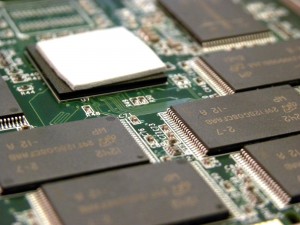 Solid-state drives (SSDs) have a number of advantages over hard disk drives (HDDs): They’re faster, they consume less electricity, and they’re a more practical option in a wide range of operating conditions. Recently, Microsoft reportedly pressured manufacturers to avoid using HDDs as boot media, citing the advantages (and potential performance improvements) of SSD.
Solid-state drives (SSDs) have a number of advantages over hard disk drives (HDDs): They’re faster, they consume less electricity, and they’re a more practical option in a wide range of operating conditions. Recently, Microsoft reportedly pressured manufacturers to avoid using HDDs as boot media, citing the advantages (and potential performance improvements) of SSD.
With that said, SSDs aren’t perfect — like any storage medium, they’re susceptible to data loss.
They may also have a much higher impact on the environment than traditional magnetic storage media. A recent study (PDF) from the University of Wisconsin-Madison and the University of British Columbia questions the long-standing assumption that SSDs have a lower carbon footprint than HDDs.
SSDs consume less energy, but require more greenhouse gas emissions during manufacturing.
According to the study, SSDs have the highest emissions of any component in home and server computer systems — twice that of HDDs.
Why? For starters, SSDs have an operating lifespan that roughly aligns with that of a standard HDD (5-8 years, on average). They also generally have a lower capacity, and as a result, many computer owners operate multiple SSDs.
But the high environmental cost of SSDs is primarily due to the manufacturing process. Solid-state media uses NAND and DRAM flash memory, which require state-of-the-art silicon manufacturing techniques. Those techniques require a lot of energy, most of which comes from coal and other less-than-sustainable fuels.
Over time, SSDs may become a more sustainable option.
If you’re clutching your SSD and hoping for good news, we’ve got some: The study notes that as SSDs scale in capacity and attain higher operating lifespans, their carbon footprint will drop. Unlike HDDs, SSDs are fairly well-suited for recycling, as NAND chips can be re-manufactured from previously used components without serious security and privacy concerns.
Additionally, the study was limited in its approach. The authors focused on high workload applications, and it made assumptions about the energy sources (such as coal) used in semiconductor manufacturing. We don’t have much data on whether that’s truly the case — in many countries, manufacturers don’t publicize this information.
Given that SSDs consume much, much less electricity while operating, they may currently have a lower carbon footprint than HDDs in typical home computing applications.
Don’t panic — using an SSD in your home computer won’t ruin the environment.
Eco-minded consumers shouldn’t read too much into the results of a single study. As sustainability becomes a more crucial concern among storage media manufacturers — and given the increasing number of international laws reinforcing sustainable practices, that’s likely to be the case — SSDs are well-positioned to improve their carbon footprint.
In the meantime, you can reduce your personal footprint with one simple practice: Turn your computer off when you aren’t using it.
If you’ve lost data from an SSD or HDD, we’re here to help. Datarecovery.com offers free media evaluations, and every case features a no data, no charge guarantee. Submit a case online to get started or call us at 1-800-237-4200.





